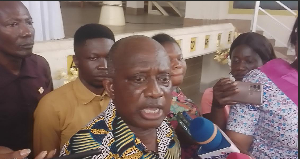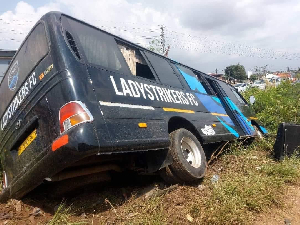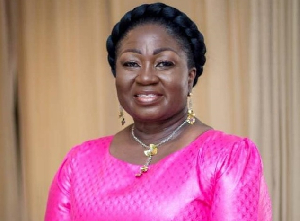The Kenyan capital markets regulator is locked in a tussle with the Nairobi Securities Exchange over the proposed introduction of a separate trading board for listed companies that fall into financial or management trouble.
While the Capital Markets Authority sees the new “recovery” board as a necessary buffer to protect innocent investors seeking to buy shares of the ailing companies, the NSE views the move as tantamount to condemning and shaming its members.
The CMA and the NSE are not reading from the same script on the plan that the regulator says is designed to give troubled firms time to turn around their fortunes.
The CMA has held its ground, instructing the NSE to submit its rules for the operationalisation of the new board by April this year.
“We only need NSE to submit rules; we don’t require regulations as this is a board, not a new segment,” the CMA director for Regulatory, Policy and Strategy Luke Ombara told The EastAfrican.
The NSE, which has 65 listed firms says singling out its troubled members will add more pain on the beleaguered bourse that is suffering from a prolonged lack of new listings and capital raising by existing firms through rights issues.
“This board affects the market. We received feedback from the market and some issues were raised. There have been some consultations with CMA but no firm outcome yet. We are still in consultations,” said NSE’s chief executive Geoffrey Odundo. “We have not yet come up with a formal position on how we are going to set up this recovery board.”
Although Mr Odundo declined to disclose the contentious issues raised by listed firms, the NSE firms are worried of being pushed into a recovery board, arguing the action will send the wrong signals to investors about their financial soundness, thereby making their stocks less attractive. Listed firms are also uncomfortable with the “recovery board” name tag.
The CMA acknowledges that issues to do with perception, awareness, impact and terminology has delayed the implementation of the plan, but insists that the “recovery board” will go live in April.
The CMA says financially troubled firms including those that fail to comply with disclosure requirements, those that delay in reporting of financial results and those whose working capital falls below the minimum will be pushed onto the recovery board.
“Time for roll out is likely April. There was a need for sensitisation and awareness for both investors and potential companies on the benefits of moving to the recovery board,” said Mr Ombara. “But we are not condemning companies by pushing them to the recovery board. They are even allowed to trade but with limits for instance five per cent from the previous closing price compared with 10 per cent for the main boards and GEMS.”
The CMA argues that the introduction of the recovery board will not necessarily stop mandatory de-listing of troubled firms but would help bring sanity on the stockmarket that has seen three firms — ARM Cement, Deacons (East Africa) Plc, and Mumias Sugar Company — suspended from trading over financial and corporate governance issues in the past two years, while Atlas African Industries delisted altogether.
“We want the board to succeed in bringing companies to compliance or recovering from financial distress; not to name and shame them. We are discussing an alternative terminology to ‘recovery’ to avoid negative perceptions,” said Mr Ombara.
Paul Mwai, chief executive of AIB Capital and chairman of the Kenya Association of Stockbrokers and Investments Banks, said a recovery board would strike a middle ground between shareholders of troubled firms who still want to trade their shares and the general public, who would now be fully aware of distressed firms and therefore trade in them with caution.
“The recovery board is likely to be a middle ground between the investing public who require some level of protection from troubled firms and the existing shareholders who may require to trade in these shares because when troubled firms are suspended from trading some investors are denied the opportunity to trade in them through speculation,” said Mr Mwai.
The NSE, which is facing a crisis of confidence, has seen only 15 cash calls valued at Ksh108 billion ($1.08 billion) in the past 10 years (2010-202019), with the latest rights issues being that of Kenya Electricity Generating Company and Longhorn Publishers in 2016, according to data from CMA. During the same period the bourse has recorded an initial public offering drought, with the last IPO being the self-listing of the NSE in 2014.
Last year sugar processor Mumias, the region’s largest miller, was pushed into administration after failing to pay off debts it owes to banks amounting to close to Ksh12.5 billion ($125 million) while in 2018 loss-making and debt ridden cement maker ARM and fashions retailer Deacons East Africa surrendered to a similar fate. Several other companies including Kenya Airways, Uchumi Supermarkets, Express Kenya, Sameer Africa, Eveready East Africa, East African Portland Cement, Sasini, Kenya power, TransCentury, East African Cables and Home Afrika are facing a combination of corporate governance and financial challenges.
Rules for delisting
The Capital Markets Authority in 2018 proposed an amendment to the Nairobi Securities Exchange listing and trading rules to introduce a Recovery Board where financially distressed firms would be rehabilitated for two to three years to help them get back to stronger footing.
Failure by the rehabilitated firms to recover within this period would eventually lead to delisting from the exchange.
According to the CMA, financially troubled firms including those that fail to comply with disclosure requirements, those that delay in reporting of financial results and those whose working capital falls below the minimum will be pushed onto the recovery board
The proposed Recovery Board is expected to have distinct rules and regulations including eligibility criteria, continuing reporting requirements, and periodic submissions to the regulator.
Investors trading in firms on the Recovery Board would be advised to trade with caution, fully aware that they are dealing with firms in trouble.
Globally, Hong Kong, US, Pakistan, Japan, and India have introduced recovery boards to accommodate listed firms that do not meet the requirements of the main board and ensure key investor protection measures are maintained.
Africa Business News of Tuesday, 25 February 2020
Source: theeastafrican.co.ke

















